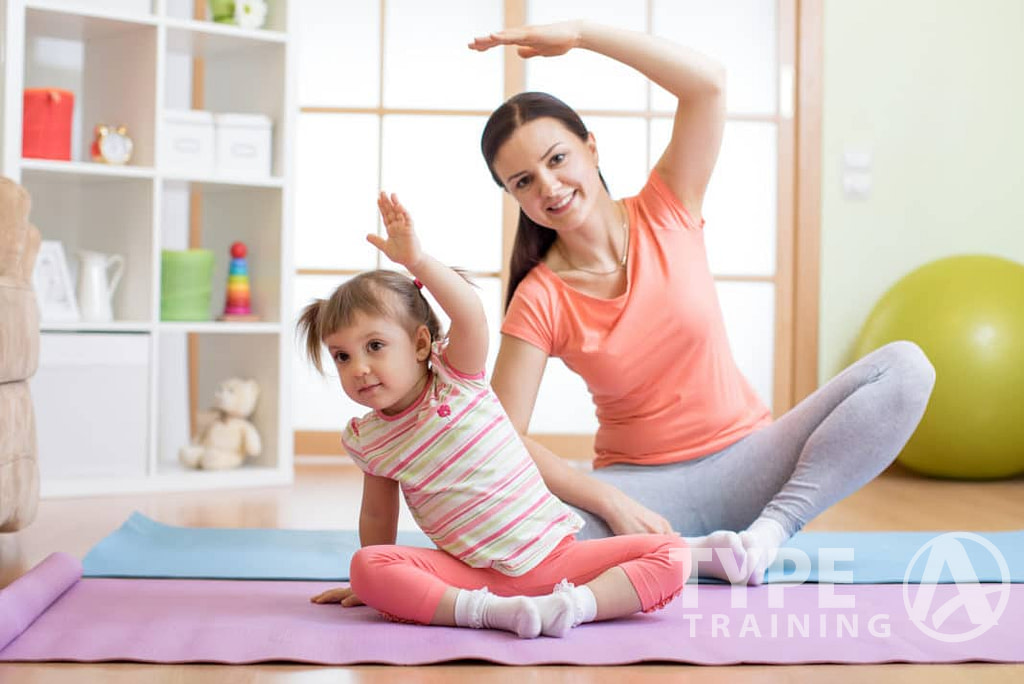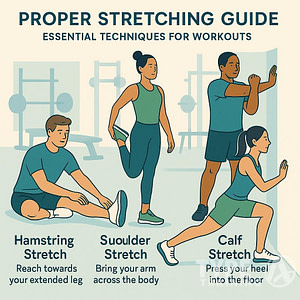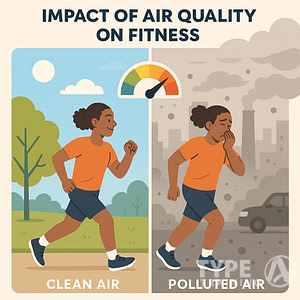If you want to set your child up for a healthy future, then it’s important to start focusing on their fitness early on. Regular physical activity is essential for both physical and mental health, and establishing healthy habits from a young age can have a significant impact on their overall wellbeing.
According to the Centers for Disease Control and Prevention (CDC), physical activity provides numerous benefits for children, including improved academic performance, better brain health, and reduced risk of depression. Additionally, being active can help build strong muscles and endurance, improve heart and lung health, and reduce the risk of chronic diseases such as type 2 diabetes and obesity.
As a parent, it’s important to encourage your child to be active and make physical activity a regular part of their daily routine. Whether it’s playing outside, participating in organized sports, or taking family walks, there are many ways to make fitness fun and engaging for kids. By prioritizing their physical health early on, you can help set them up for a healthy, active future.
“Physical fitness is not only one of the most important keys to a healthy body, but it is also the basis of dynamic and creative intellectual activity.” – John F. Kennedy
Key Takeaways
- Starting kids’ fitness early can have a significant impact on their overall health and wellbeing.
- Regular physical activity provides numerous benefits for children, including improved academic performance, better brain health, and reduced risk of chronic diseases.
- As a parent, you can encourage your child to be active and make fitness fun by incorporating physical activity into their daily routine.
The Importance of Kids Fitness
Physical fitness is important for children of all ages. Engaging in regular physical activity helps prevent chronic diseases such as obesity, type 2 diabetes, and heart disease. It also promotes healthy growth and development, improves bone density, muscle strength, and cognitive development.
Physical Health
Physical activity helps children maintain a healthy weight and reduces the risk of developing chronic diseases. According to the CDC, children and adolescents should engage in at least 60 minutes of physical activity per day. This can include activities such as walking, jumping, running, soccer, and more.
Young children should also engage in tummy time to develop their muscles and promote healthy growth. As children grow older, it is important to engage in age-appropriate physical activities to maintain physical fitness.
Mental Health
Physical activity not only benefits physical health but also mental health. Exercise releases endorphins and serotonin, which can improve mood and reduce anxiety and depression. It also promotes healthy habits and self-esteem.
According to KidsHealth, “Children who are active show improved attention, sharper memory skills, and an overall better mood.”
To promote physical and mental health, it is important to incorporate a variety of physical activities and healthy food choices into a child’s routine. Strategies such as leading by example, making physical activity fun, and prioritizing sleep and nutrition can also help promote a healthy lifestyle.
“Physical activity should be fun, otherwise children will not want to do it,” says Dr. David Ludwig, a pediatrician and professor of nutrition at Harvard Medical School.
In conclusion, physical fitness is important for children’s growth and development. Engaging in regular physical activity promotes both physical and mental health and can prevent chronic diseases. Encouraging healthy habits and a variety of physical activities can help children develop into healthy adults.
“Children who are active show improved attention, sharper memory skills, and an overall better mood.” – KidsHealth
Sources:
- CDC
- KidsHealth
Start Early for a Healthy Future
Starting early with fitness and a healthy lifestyle is crucial for your child’s long-term health outcomes. By instilling healthy habits in your child from an early age, you can reduce their risk of chronic diseases like high
Toddler Years
During the toddler years, children are developing rapidly, and it’s important to provide them with opportunities to move and explore their environment. Encourage your toddler to engage in physical activities like crawling, walking, and playing with balls or other toys. You can also incorporate structured activities like swimming or dance classes to help them develop coordination and strength.
It’s also important to provide your toddler with healthy food choices. Make sure to offer a variety of fruits, vegetables, and whole grains. Avoid sugary snacks and drinks, as they can contribute to tooth decay and unhealthy weight gain.
Childhood Years
As your child enters their childhood years, it’s important to continue to encourage physical activity and healthy food choices. According to the CDC, children should engage in at least one hour of physical activity per day. This can include structured activities like sports or dance classes, as well as unstructured playtime like running around outside or playing with friends.
In addition to physical activity, healthy eating habits are crucial for your child’s overall health. Make sure to offer a variety of fruits, vegetables, lean proteins, and whole grains. Limit sugary snacks and drinks, and encourage your child to drink plenty of water.
Resources like Healthy Kids, Healthy Future offer ideas and activities to help get kids moving. You can also talk to your child’s pediatrician for additional resources and advice.
“Physical activity habits formed in childhood can last a lifetime.” – Healthy Kids, Healthy Future
Physical Health
Physical activity is crucial for children’s overall health and well-being. Engaging in regular physical activity not only helps maintain a healthy weight but also improves cardiovascular health, strengthens bones and muscles, and enhances mental health and cognitive function. In this section, we will explore the benefits of physical activity, types of physical activities, age-appropriate physical activities, and resources for physical activities.
Benefits of Physical Activity
Physical activity has numerous benefits for children’s health. According to the CDC, regular physical activity can help:
- Improve bone health
- Improve cardiovascular health
- Reduce the risk of obesity
- Reduce the risk of type 2 diabetes
- Improve mental health and cognitive function
- Improve sleep
Types of Physical Activities
Physical activity can come in many forms. It is essential to encourage children to engage in a variety of activities to promote overall physical fitness. Some examples of physical activities include:
- Aerobic activity, such as running, jumping, or walking
- Muscle-strengthening activities, such as climbing or jumping
- Bone-strengthening activities, such as jumping or running
- Stretching exercises, such as yoga or breathing exercises
Age-Appropriate Physical Activities
It is crucial to choose age-appropriate physical activities for children. Young children should engage in activities that promote growth and development, such as crawling, walking, and running. Older children should engage in activities that promote physical fitness, such as sports or aerobic activities. It is also important to ensure that the activities are safe and enjoyable for children.
Resources for Physical Activities
There are many resources available to help parents and caregivers promote physical activity for children. The Healthy Kids, Healthy Future website provides resources and best practices for physical activity in child care and early education settings. The CDC also provides guidelines and recommendations for physical activity for children.
“Physical activity should be encouraged from an early age, as it can help establish healthy habits that can last a lifetime.” – Healthy Kids, Healthy Future
Mental Health
Physical activity is not only essential for maintaining physical health, but it also plays a crucial role in promoting mental health. Engaging in regular exercise can help children develop healthy habits that can last a lifetime, leading to increased self-esteem, improved relationships, and better academic performance.
Benefits of Exercise on Mental Health
Exercise is known to release endorphins and serotonin, which are chemicals that can improve mood and reduce anxiety and depression. According to a prospective study published in The Lancet Psychiatry, even light activity can have a positive impact on children’s mental health, leading to a decrease in depressive symptoms and an increase in self-esteem.
Age-Appropriate Exercises for Mental Health
When it comes to promoting mental health through exercise, there are many age-appropriate options to choose from. For younger children, activities such as playing tag, dancing, and jumping rope can be great ways to get moving. As children get older, they may enjoy more structured activities like soccer or training for a 5K.
Resources for Mental Health Exercises
If you’re looking for resources to help your child stay active and promote mental health, there are many options available. The Centers for Disease Control and Prevention (CDC) recommends that children get at least one hour of physical activity per day. This can include a mix of aerobic activity, muscle-strengthening exercises, and bone-strengthening exercises.
One great resource for finding age-appropriate exercises is the website of the President’s Council on Sports, Fitness & Nutrition. They offer a variety of resources for parents and children, including a list of fun physical activities for kids. Additionally, many local community centers and gyms offer classes and programs specifically designed for children.
As Dr. Karen Postal, president of the American Academy of Clinical Neuropsychology, says, “Exercise is medicine for the brain, and it’s something that everybody can do.” By encouraging your child to engage in regular physical activity, you can help them develop healthy habits that will benefit them for a lifetime.
Sources:
Conclusion
In conclusion, starting early with kids fitness is crucial for their healthy future. Regular physical activity can lead to numerous health benefits for children, including improved brain health, muscular fitness, heart and lung health, cardiometabolic health, and bone strength. As CDC suggests, physical activity can also reduce the risk of several chronic diseases, such as type 2 diabetes and obesity.
Engaging in regular physical activity can also produce improvements in an individual’s physical health, cognitive performance, and psychological well-being. Physical benefits include, but are not limited to, reduced risk for diseases, and improvements in physical functioning, fitness, and overall quality of life. As Open Textbook Library states, kids who exercise regularly have better mental health and perform better in school.
It is important to note that promoting childhood physical fitness is not enough. Creating a lifestyle pattern of regular physical activity that will carry over to the adult years is essential. As AAP suggests, it is of primary importance to discover behavioral patterns that will encourage regular physical activity in children and teens.
In the words of Michelle Obama, “Exercise is really important to me – it’s therapeutic. So if I’m ever feeling tense or stressed or like I’m about to have a meltdown, I’ll put on my iPod and head to the gym or out on a bike ride along Lake Michigan with the girls.” This quote highlights the importance of exercise not only for physical health but also for mental health. Encouraging kids to be active from a young age is a gift that will keep on giving throughout their lives.
Frequently Asked Questions
Why is physical activity important for child development?
Physical activity is essential for child development as it helps children develop gross motor skills, coordination, and balance. It also promotes healthy bone and muscle growth, improves cardiovascular health, and reduces the risk of obesity and chronic diseases later in life. According to Mayo Clinic, regular exercise can also improve children’s thinking and memory skills.
How does exercise benefit a child’s sense of well-being?
Exercise is not only beneficial for physical health but also for mental health. It can help boost a child’s mood, reduce stress and anxiety, and improve self-esteem. According to Verywell Family, a regular fitness routine can even reduce feelings of anxiety and depression in kids.
What are the benefits of early physical activity?
Early physical activity can have numerous benefits for children. It can improve their overall health and well-being, promote healthy growth and development, and establish healthy habits that can last a lifetime. According to CDC, early physical activity can also reduce the risk of chronic diseases such as obesity, heart disease, and diabetes.
What is the importance of physical fitness in early childhood?
Physical fitness is crucial in early childhood as it lays the foundation for a healthy lifestyle in adulthood. According to KidsHealth, physical activity can help children learn about sportsmanship, setting goals, meeting challenges, teamwork, and the value of practice. It can also improve their social skills and cognitive development.
What is the most important reason to provide opportunities for children to exercise in an early years setting?
The most important reason to provide opportunities for children to exercise in an early years setting is to promote healthy development and establish healthy habits early on. According to CDC, children who are physically active tend to have better academic achievement, better school attendance, and improved behavior in the classroom.
Why is it important to maintain an active lifestyle starting early in life?
Maintaining an active lifestyle starting early in life is important as it can help prevent chronic diseases and promote healthy aging. According to CDC, physical activity can reduce the risk of chronic diseases such as heart disease, stroke, and diabetes. It can also improve bone health, reduce the risk of falls, and improve cognitive function in older adults.
As the American Council on Exercise states, “Exercise should be viewed not as a chore or burden, but rather as a gift that you are giving yourself and your children. It is an investment in your health and well-being that will pay dividends for years to come.”







